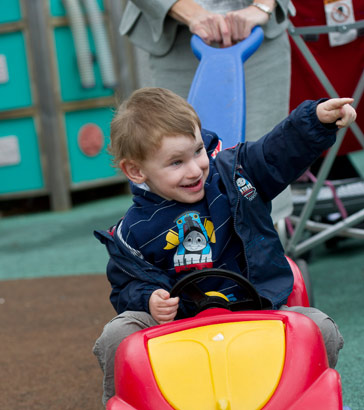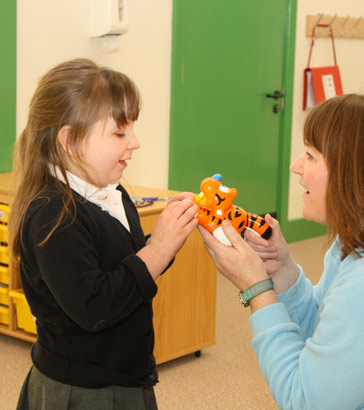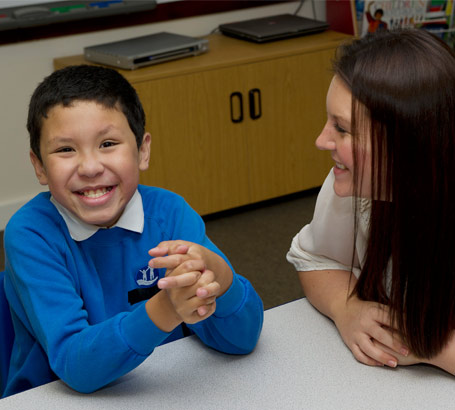Language skills are the single best indication of intellectual ability, and evidence exists that early language skills are related to later reading skills. In fact, among school-age children who have specific language impairments, up to 50% also have a learning disorder involving reading.
Wilks et al, 2010
Language involves the symbolic representation of thoughts and ideas. It can be either expressed or received.
- Receptive language: The ability to understand words or sentences.
- Expressive language: The written or spoken language that we use to convey our thoughts, emotions, or needs.
Babies are sociable from birth... [They] need to interact with caregivers who are important to them, with whom they have a warm and loving relationship. It is through these interactions that children become competent language users.
Evangelou et al, 2007
Speech, or vocal communication, is only one form of...language. Other forms include the use of gestures, manual signs, facial expressions, body postures, pictures, diagrams, and written symbols. Each of these has a strong cultural overlay.
Wilks et al, 2010
of communication

Gesture can be an important aspect of communication in the classroom. Children can reveal more knowledge via gesture than language.
Goswami and Bryant, 2007

Babies require and/or seem to enjoy:
- Turn-taking patterns of interaction;
- Responsive and encouraging interactions;
- 'Motherese' (speech with simplified grammar and content; repetition; exaggerated emphasis), rhyming games, singing and word play;
- Not too much background noise (such as from television).
(Evangelou et al, 2009)

It is important that preschool children experience a range of receptive and expressive language, including children's poetry, storytelling, and creative dramatics.
Evangelou et al, 2009
Language is essential for cognitive development (Goswami and Bryant, 2007). Children's environments affect how their language
develops.
Conversational turn-taking and responsive communication can be experienced only with other people, and not through TV and
video (Wilks et al, 2010).

Rapid learning (or 'fast mapping') of words occurs around age two years. Having previously explored the world around them using their senses, concepts are familiar to children before they have the words for them (Goswami and Bryant, 2007).
An English-speaking child uses:
- 16 months: 55 words
- 23 months: 225 words
- 30 months: 573 words
- 6 years: 6000 words (understands 14,000 words).
(Goswami and Bryant, 2007)

Children unconsciously make assumptions which help them learn language quickly including that:
- A word refers to a whole object;
- There is only one name per object; any new word refers to a different object;
- Two objects with similar features can have a name in common, but each object may have its own individual name (eg cats and dogs are both animals).
(Levine and Munsch, 2011)

The ways teachers talk to children can influence their:
- Learning
- Memory
- Motivation to learn
(Goswami and Bryant, 2007)

Watch these videos on the development and importance of speech and language covering the following topics:
- The importance of speech and language.
- The pyramid of speech and language development.
- Top talking tips for parents of under fives.
- Top talking tips for early years practitioners.
- The importance of play.

Evangelou, M., Sylva, K. and Kyriacou, M., Wild, M. and Glenny, G. (2009) Early Years Learning and Development: Literature Review. Annesley: DCSF Publications.
Wilks, T., Gerber, R.J. and Erdie-Lalena, C. (2010) Developmental milestones: cognitive development, Pediatric Review, 31, 364-367.

If you want to find out exactly what new teachers need to know regarding children's communication skills read the following key text:
The Communication Trust (2011) Let's Talk About It. London.